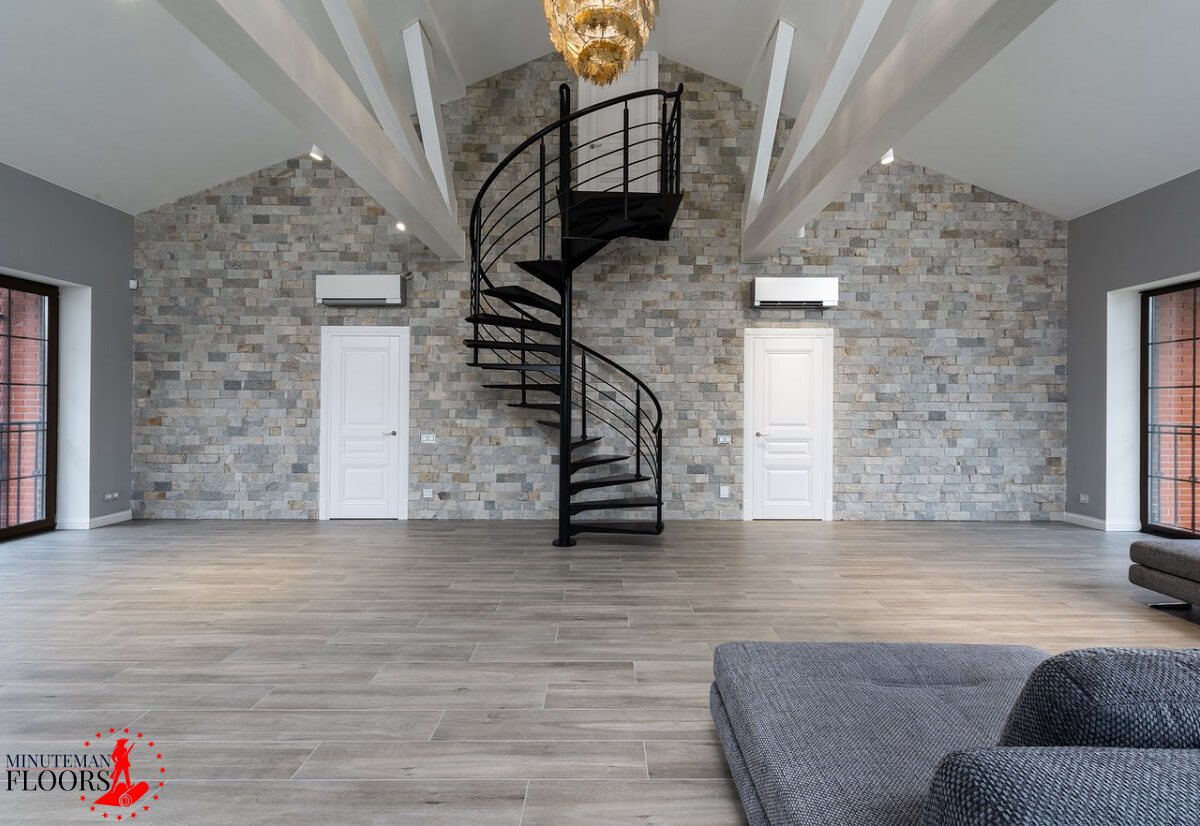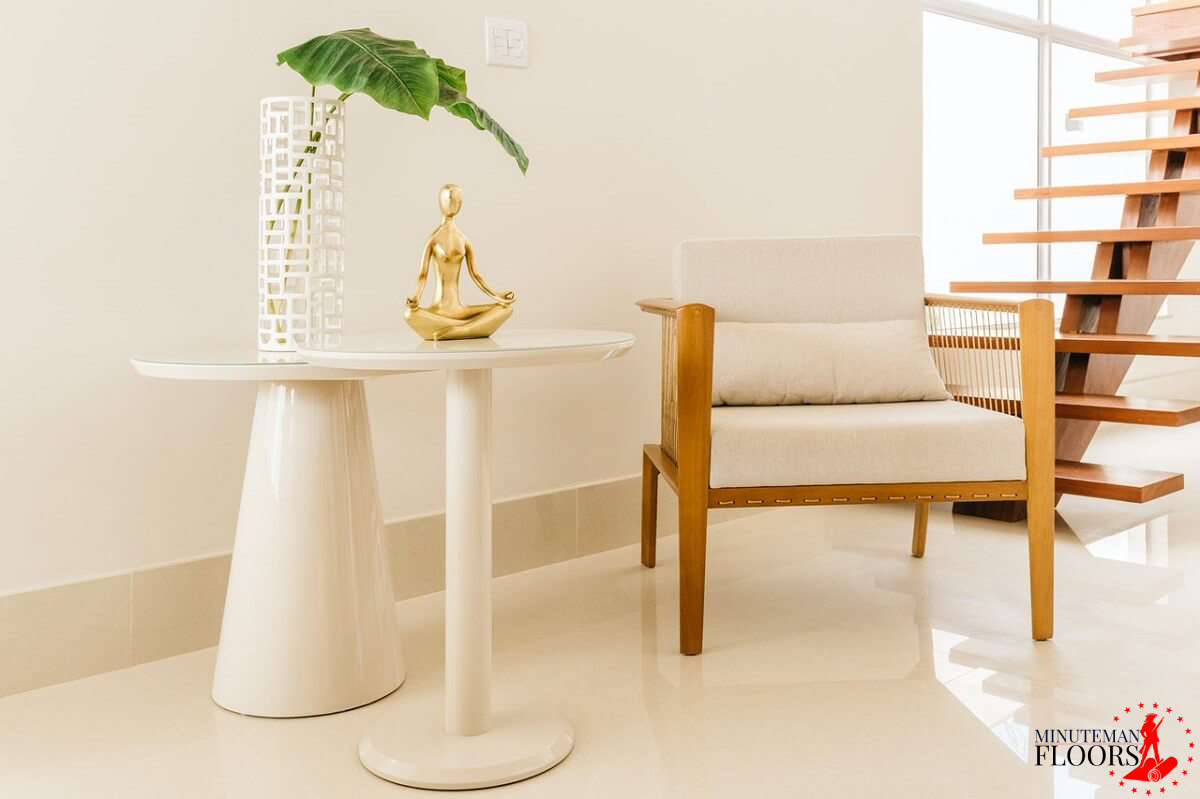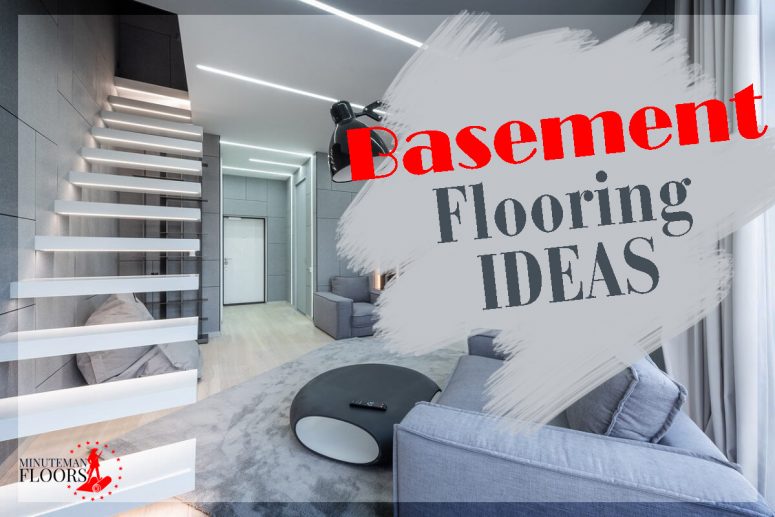The basement is different from other areas of the home. While you can use this area to create useful storage space and expand the living space, you also need to select the right flooring option for the basement. The maintenance of the basement comes along with some unique challenges. Most of all, the basement of a house or an apartment has the risk of moisture and dampness. While looking for basement flooring ideas, you need to choose the top-quality option.
The flooring option that you select for your basement should not just look good, but it should also take care of the moisture issues. The right type of flooring will transform your basement, from a dark and damp area to an extended living space that you can properly use and be proud of.
Key Challenges with Basement Flooring
Since the basement is located below ground level, it requires proper maintenance. If you are unable to give the kind of care and attention that spaces like basements needs, it can create a range of issues.
Due to its low-grade location, the basement is not just dark and moist but also remains exposed to the risk of flooding.
What all this means is that just any kind of flooring will not work in the basement. You will need to take multiple factors into account when choosing flooring for this area. Apart from aesthetics, you should focus on the durability and the functionality of the flooring material. The ideal flooring material for the basement is that which does not trap water and is resistant to mold and mildew. It is a great idea to go for those materials which dry up faster. By installing the right type and high-quality flooring, you can turn your basement into a truly useful area. You can then use the space for an additional bedroom or a room where your kids can play.
A Selection of Best Flooring Ideas for Your Basement
If you are looking for some of the most ideal flooring options for your basement, here are some ideas to consider.
#1. Epoxy Sealed Concrete Flooring
Epoxy is a great option for addressing moisture damage issues. Since you are looking to install water-resistant flooring in the basement, you’ll find epoxy sealed concrete flooring offers several benefits.
This flooring material is hard. Once you install it in your basement, you really will not have to worry about damage. The floor is highly durable and it is cost-effective as well. If you are searching for a flooring option that is low-cost as well as long-lasting, you should definitely consider epoxy. The best thing about this flooring material is that it requires the least maintenance. Since epoxy is installed on top of the concrete flooring, it also offers protection to the concrete base. Once you have installed this flooring, you can also forget about germs and bacteria. With some sweeping and cleaning, epoxy will remain neat and clean.
The flooring option also comes along in a variety of colors and patterns. So, no matter what kind of aesthetics you are planning to achieve overall, you can always find epoxy to match your exact style needs. It is easy to install, but you should get it done by a professional for proper installation.
#2. Floating Floors

When it is the basement, going for floating floors is a good idea. Floating floors is a term that is used to refer to a type of floor that is not bonded to the subfloor with glue or adhesive. The concept works well because you can sandwich a barrier between the basement slab and the flooring material which stays on top of it. This barrier addresses the water damage issue effectively.
The idea of floating floors comes with a wide range of flooring material options that you can choose from. Since you get an option to install a water-resistant material below the material at the top, you can plan to install multiple flooring materials in the basement such as carpet tiles, cork flooring, engineered hardwood flooring, laminate flooring, and luxury vinyl flooring among others. To amp protection against water damage, you should choose water-resistant material for the top layer as well. In any case, the sealing must be done in a proper manner. For professional flooring installation, you should head over to Minuteman Floors in Manchester, NH.
#3. Floor Tiles with Built-in Vapor Barriers
In terms of addressing the key basement issues, floor tiles that come with built-in vapor barriers are a very useful option.
The idea of vapor barriers is a good one because it means there will be a little gap between the concrete slab and the flooring material on the top. Built-in vapor barriers mean the flooring materials will have plastic molding around its base. The molded base will give the slab breathing space. If the concrete floor has some breathing space, the chances of growth of harmful mold and bacteria will be considerably eliminated. This type of flooring is modular and interlocking. Hire professionals to get floor tiles with built-in vapor barriers installed correctly.
#4. Luxury Vinyl Tiles
Luxury vinyl tiles are different from traditional sheet vinyl. LVT is a modern flooring option that is very suitable for the basement. The majority of the LVT systems are engineered to float on the subfloor. Since vinyl does not absorb water, it is one of the best options for installation in the basement.
One of the biggest reasons for choosing LVT for the basement is its wood-like look while being prone to water damage issues. In terms of durability as well, luxury vinyl tiles are far ahead of many other flooring options. The thickness of the material creates warmth under the feet. This flooring material is easy to install, uninstall and reinstall. If you face flooding issues, you can have a professional uninstall the flooring and then reinstall the tiles later. The cost of luxury vinyl tiles is higher than that of traditional vinyl sheets, but the price is completely worth it. This basement flooring option comes with a truly eye-catching appearance.
#5. Ceramic Tiles

Ceramic tiles have always been an ideal choice for basement flooring. These tiles are both water-resistant and highly durable. Properly installed and taken care of, you can have them in good condition for years.
The water-resistant feature comes from the glazing these tiles have. It is impossible for water to seep into the floor through these tiles – until of course the glaze of the tiles has worn away. Growth of mild and mildew is a common issue in dark and damp areas such as the basement. You can solve this issue with the installation of ceramic tiles. One key thing to remember here is that you should avoid installing plywood between the tiles and the concrete floor. Instead, you should have a barrier installed between the two in order to have extra protection from moisture.
Ceramic tiles have no dearth of colors and patterns. The variety is huge and you will find several attractive designs.
#6. Rubber Floor Tiles
You can use the basement for a range of purposes. If you plan to use the basement area like a gym or space for your kids to play and have fun, you should certainly consider rubber floor tiles.
Many homeowners prefer rubber flooring for their basement over other options. This is because rubber flooring offers multiple benefits. One of these is the quality of rubber to be shock-proof. At the same time, rubber tiles are also waterproof. Usually, rubber floor tiles are thick. If you want additional thickness, you can also look for and find thicker rubber floor tiles. Most of these tiles are available in dark shades, but they can be installed in different nice patterns. If you plan to make the floor more comfortable for kids and babies, soft rubber foam tiles are also available. For further details, you should talk to a flooring professional.
#7. Stained Concrete Floor
Stained concrete flooring is gaining popularity because of its unique look. This flooring is different from painted floors. The application of paint creates an opaque look whereas stain gets into the concrete and the result is beautiful translucent tones, which have attractive variations all along the floor.
Depending on what you will like to achieve, you can either choose to have a neutral tone or a vibrant color tone. This flooring option is water-resistant and addresses the moisture issue of the basement as a result. If you choose to go with this flooring idea, you will not need to have a subfloor. Think of a stained concrete floor as a unique combination of concrete slab and flooring material. With this flooring, you can plan to achieve any kind of complementing look.
Talk to a Basement Flooring Expert
Are you thinking of remodeling your basement? Whether you are in search of the most ideal flooring material for your basement or want professional installation services, feel free to reach out to Minuteman Floors. Located in Manchester, NH, our professionals have helped a wide range of residential and commercial clients choose the best type of flooring for their specific needs.
Give our office a phone call or send us an email to schedule your free basement flooring consultation with one of our experts.

